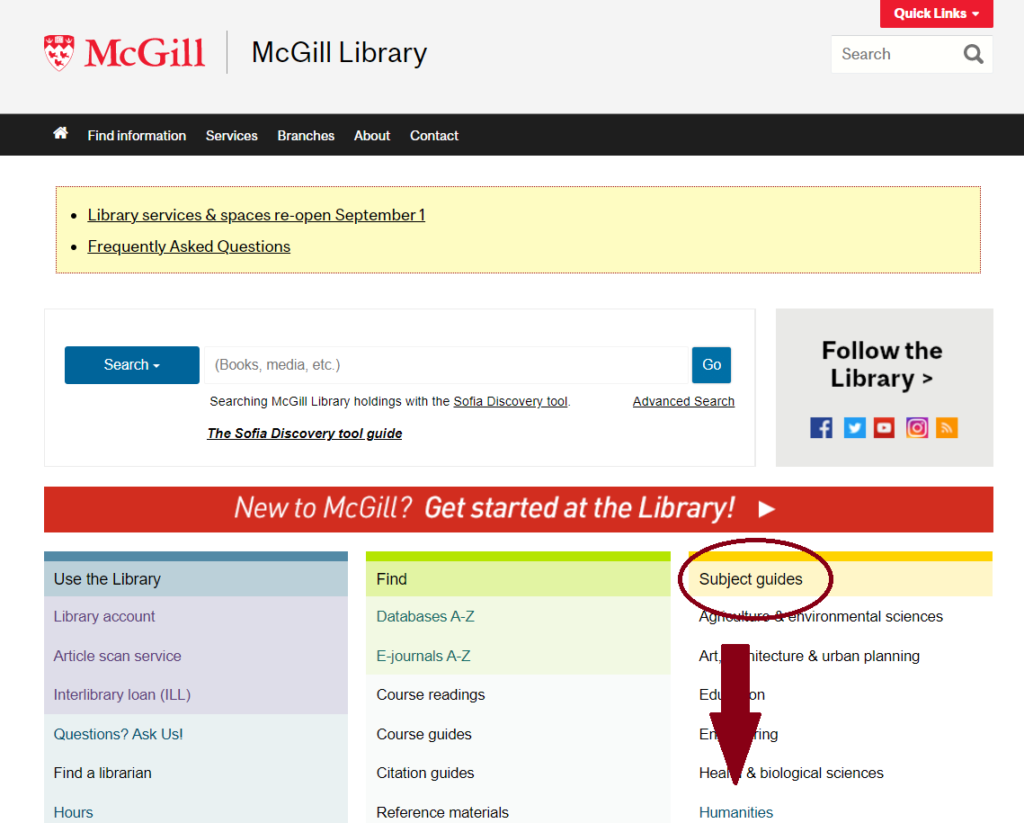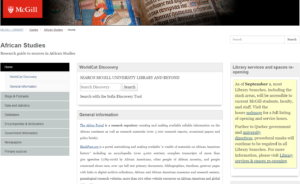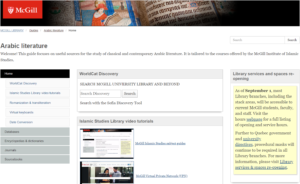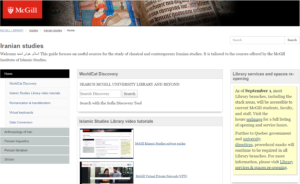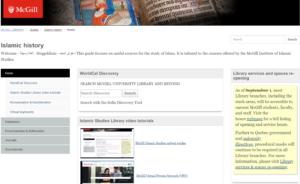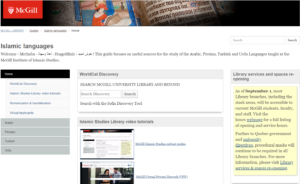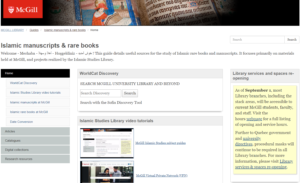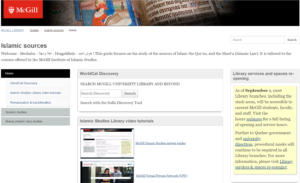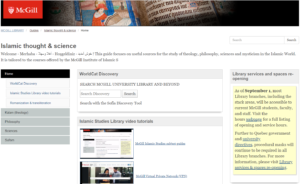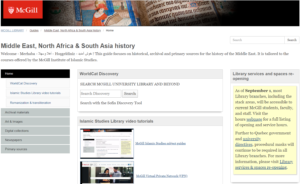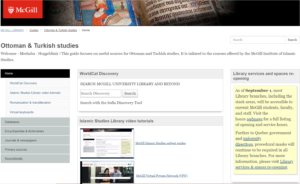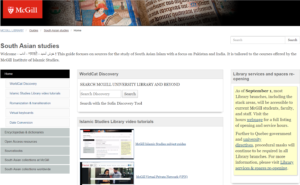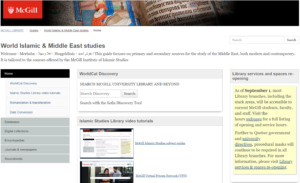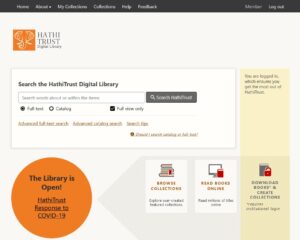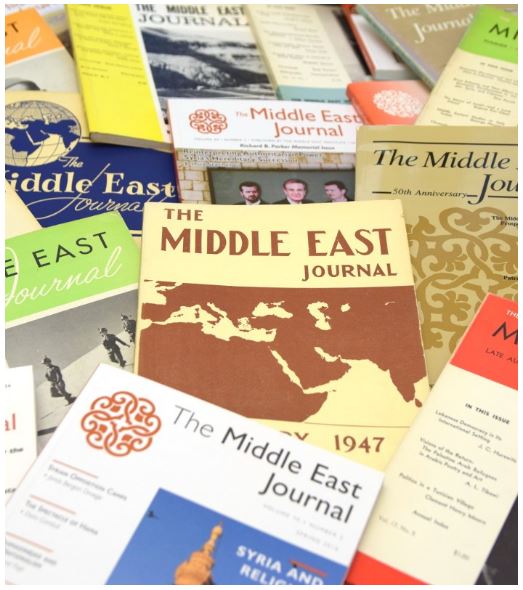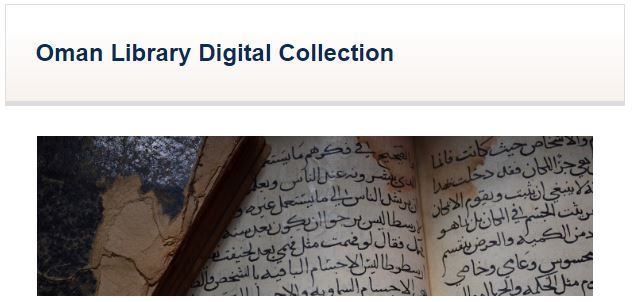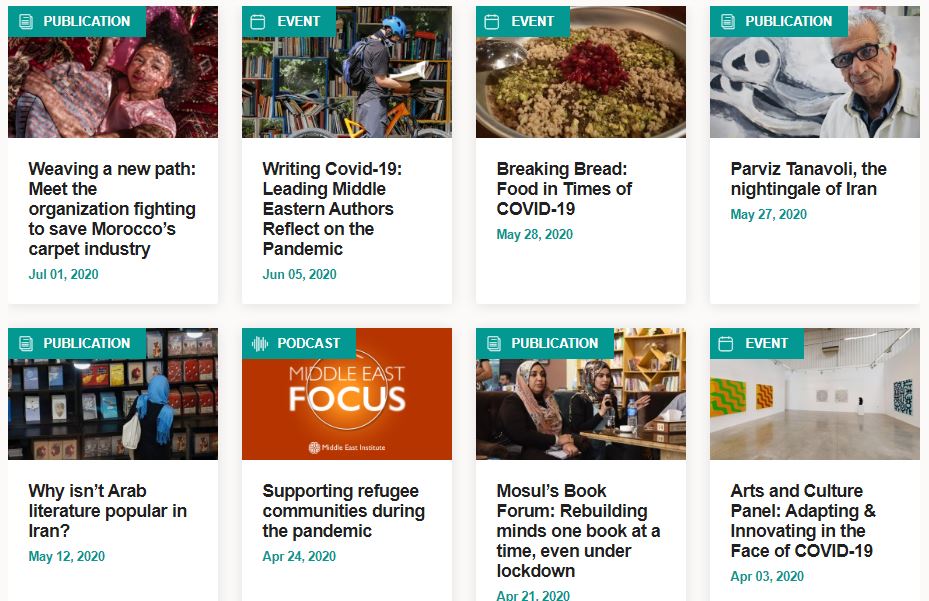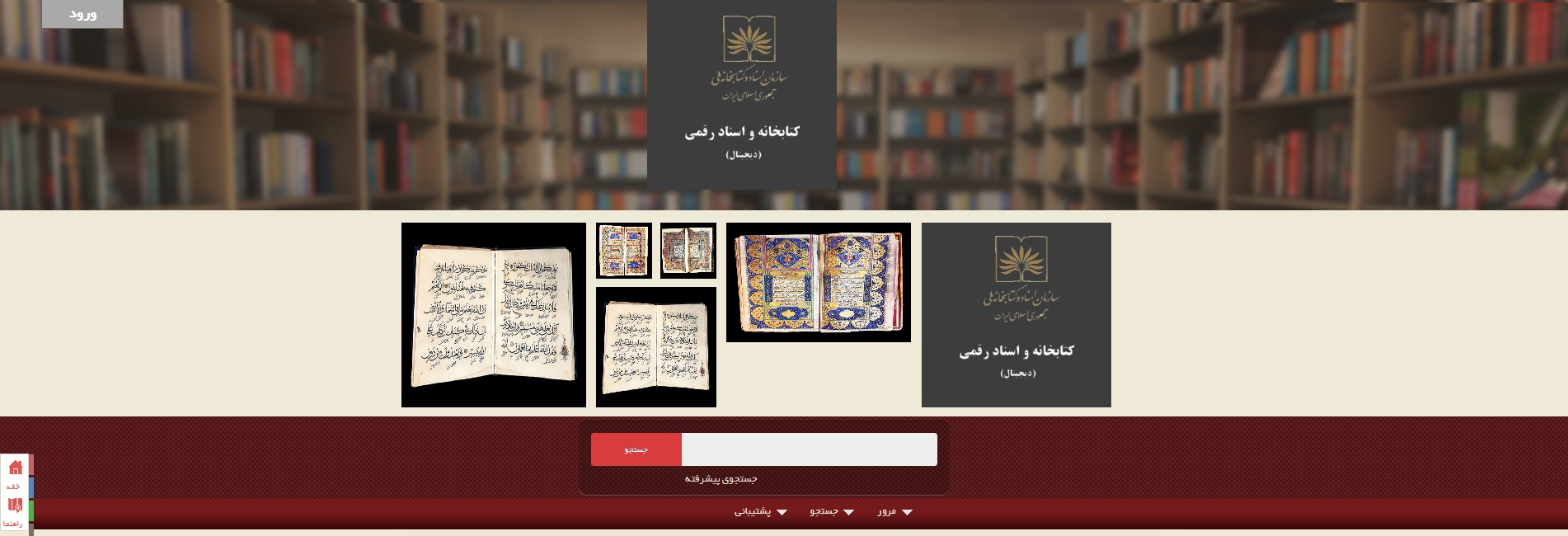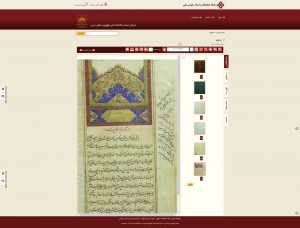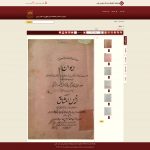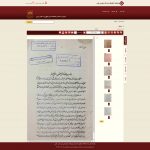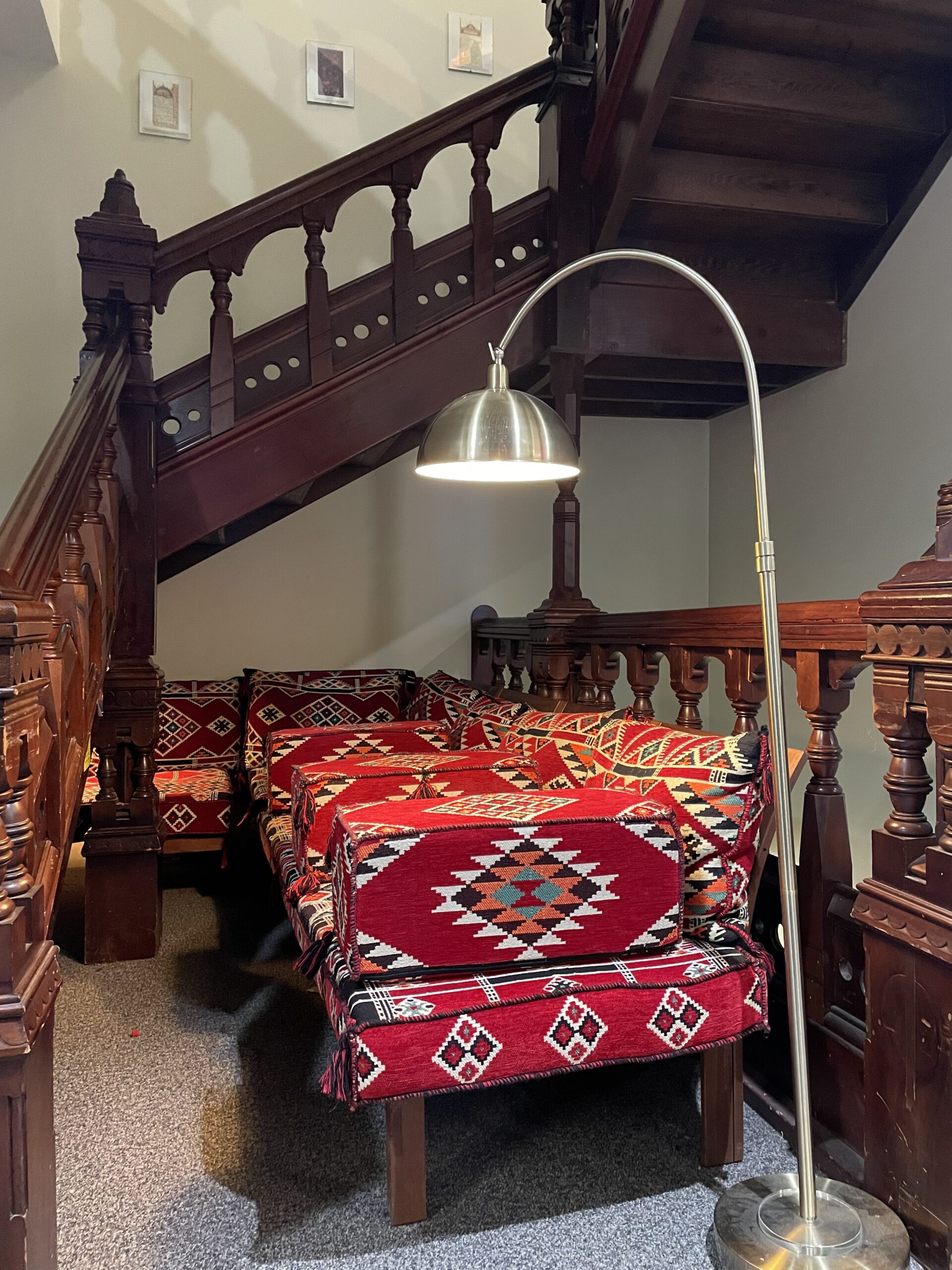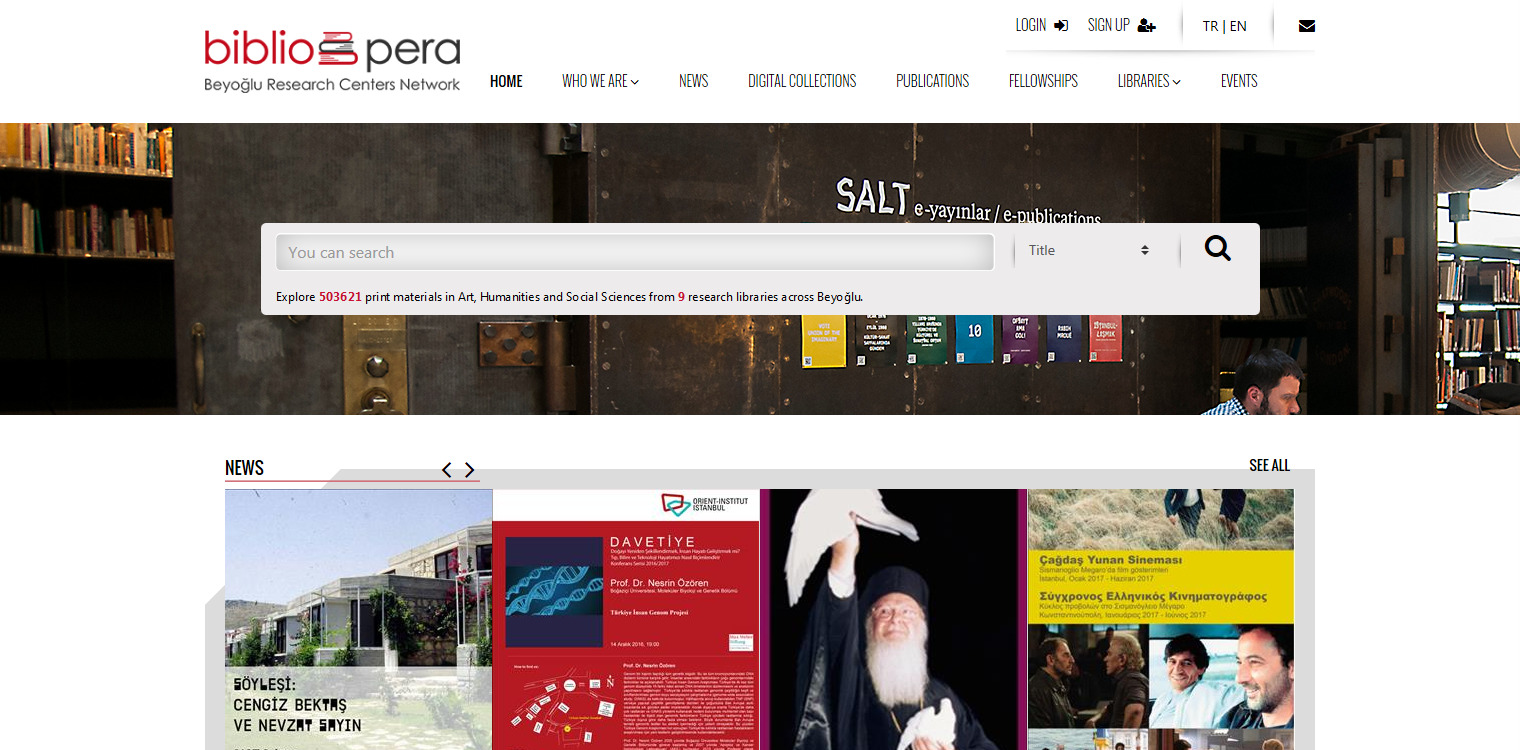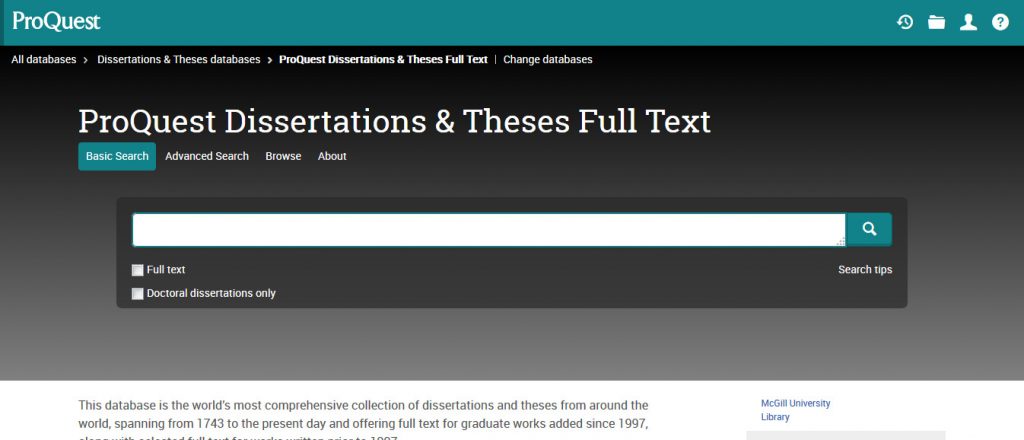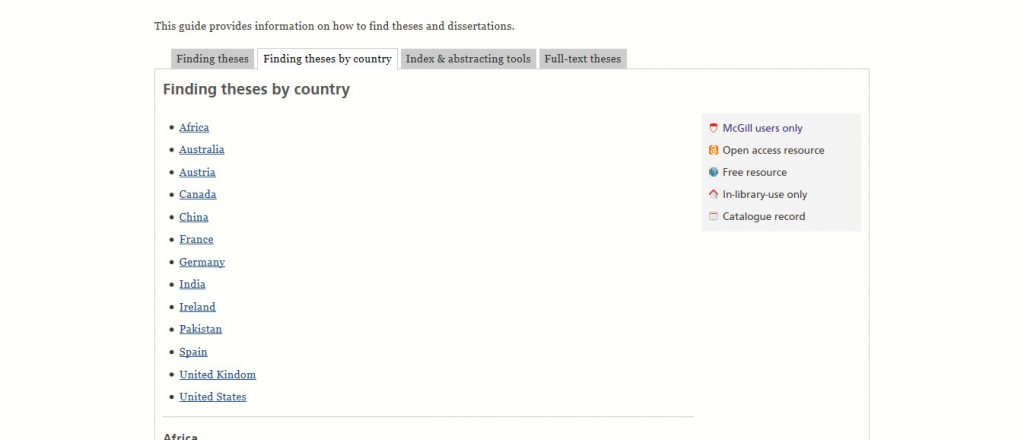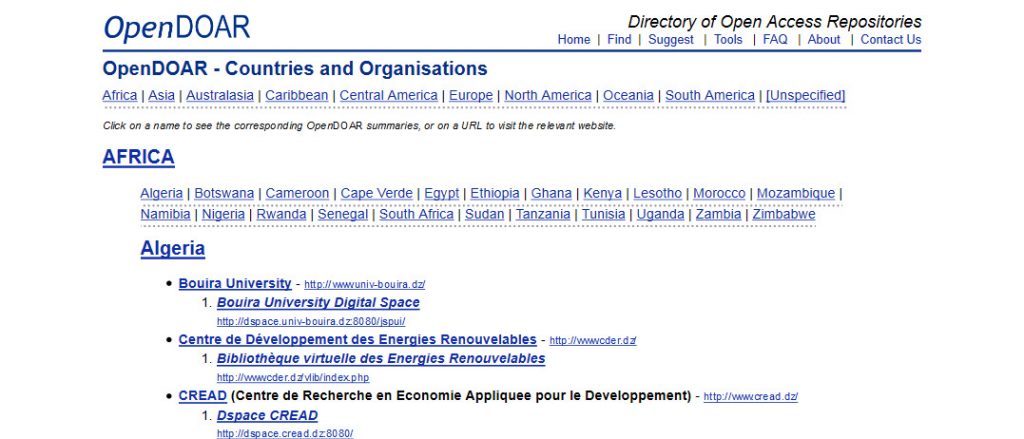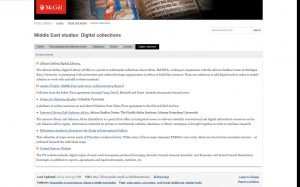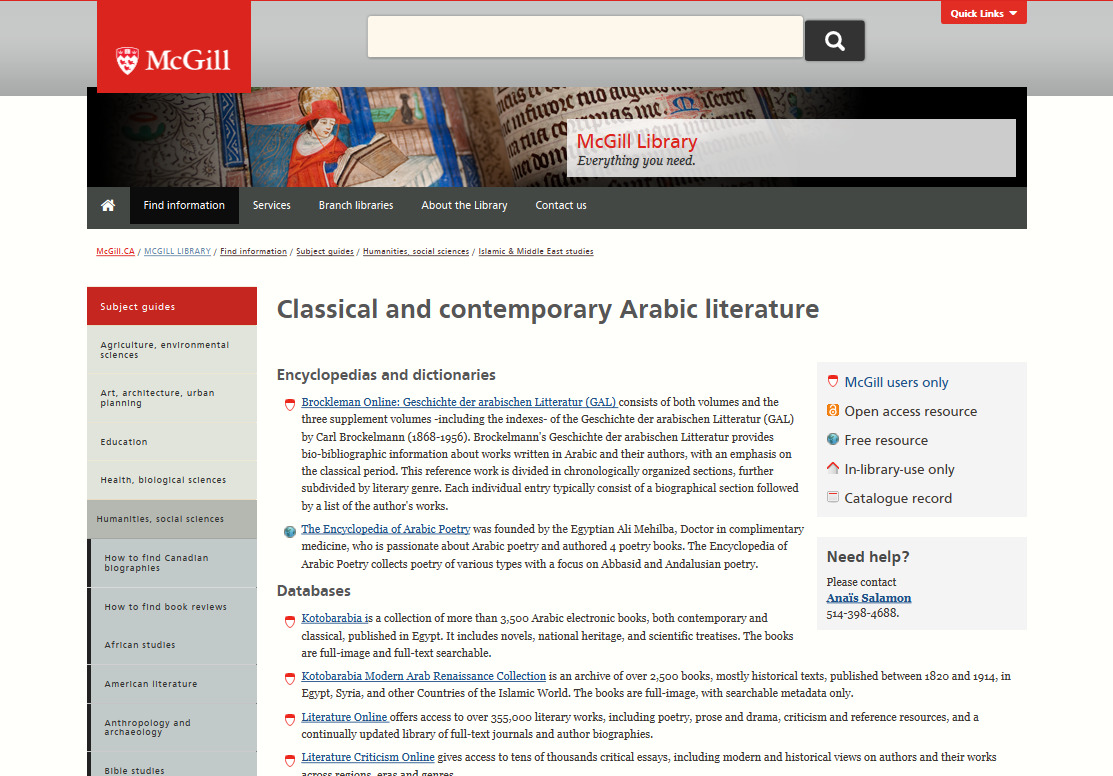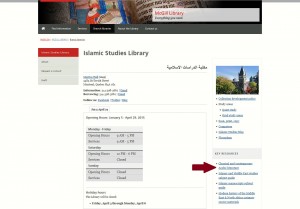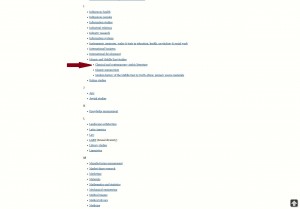Seizing the opportunity of the start of this new academic year, I decided to highlight the Islamic Studies Library (ISL) research guides that library staff conscientiously developed over the past ten years, and keep updating regularly. But before diving into the details, let me start by defining what a research guide is: a research guide -also called ‘subject guide’- is a curated list of resources focusing on a specific topic, discipline, or field of study. The research guides include both resources owned by the McGill library available only to the McGill community, and Open Access resources that are freely accessible to anyone on the internet. Our guides were developed by library staff with the help of graduate students, course lecturers and faculty of the Institute of Islamic Studies.
- How to access the ISL research guides?
There are two ways you can access our research guides. Either you go to the Islamic Studies Library main page and look for the ‘Key resources’ menu:
Or you go to the main library webpage and look for the ‘Humanities’ tab in the ‘Subject guides’ column:
2. Which disciplines or fields are covered?
Originally, we had only two guides, but over the years we added ten more in the aim to cover the broad range of topics and disciplines taught at the Institute of Islamic Studies. Currently, you will find the following guides:
- African studies
- Arabic literature
- Iranian studies
- Islamic history
- Islamic languages (Arabic, Persian, Turkish & Urdu)
- Islamic manuscripts
- Islamic sources (Qur’anic & Shari’a studies)
- Islamic thought & science
- Middle East, North Africa & South Asia history
- Ottoman & Turkish studies
- South Asian studies
- World Islamic & Middle East studies.
3. How can research guides help me?
Research guides list and link to selected resources such as reference materials (encyclopedias, dictionaries), periodicals, monographs, primary sources (archives, government documents, photographs, maps, etc.), websites, databases, etc. In addition, our guides include a number of tools that will be useful to Islamic and Middle East studies scholars like date converters, virtual keyboards for Arabic Persian, Ottoman Turkish and Urdu, as well as romanization and transliteration tables for these languages in non-roman scripts. As such, these guides are excellent starting points to dive into a topic, and familiarize yourself with the McGill library collections.
4. Where to go beyond research guides?
Within each research guide, you can access the library online catalogue (Sofia) to search for more resources on your topic(s) of interest at McGill, in Québec, and worldwide. If you need help doing so, you are invited to contact your liaison librarian (me) either by email or phone (+1-514-449-1952), or to make an appointment for a consult using the scheduling tool accessible from the guides:



